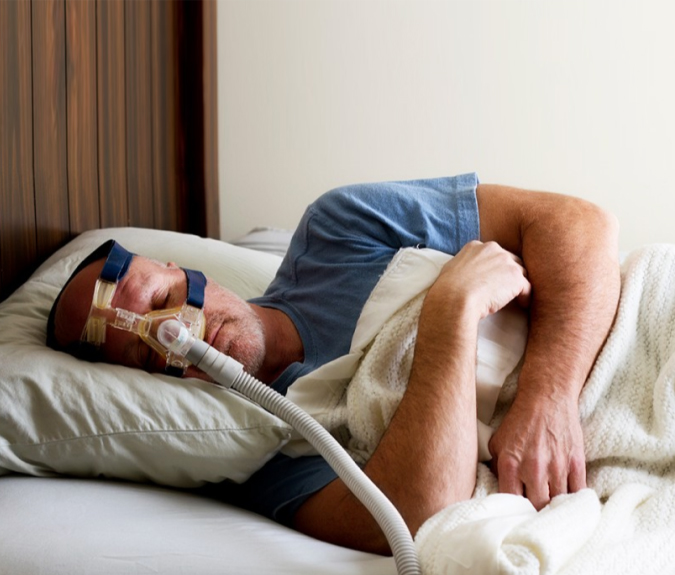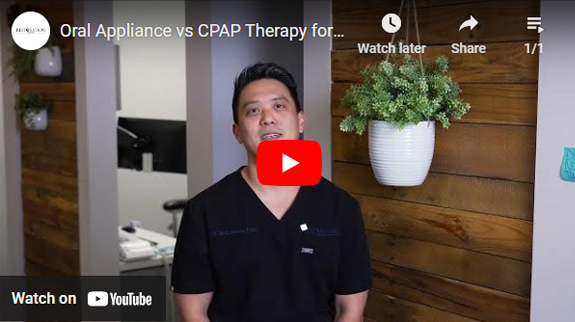Combined Therapy Part 1: CPAP Therapy
Combined Therapy Part 2: Oral Appliance Therapy
Combined Therapy: The Best of Both Worlds
Our practice offers combined therapy to assist patients who are not receiving complete benefits from a single treatment method. This involves wearing an oral appliance and using a CPAP machine simultaneously. By combining these two treatments, their individual strengths are enhanced.
The oral appliance partially opens the patient's airway, allowing the CPAP machine to be set at a lower level. This reduces the overall noise and discomfort associated with the machine and enables the patient to wear a small nasal mask instead of a full facemask. Additionally, this approach makes it more convenient to continue sleep apnea treatment while traveling. If you frequently travel for business, you can simply bring your oral appliance instead of packing the entire CPAP machine. Ultimately, this combined therapy offers a suitable compromise that many patients have been seeking.
When Should a Person Consider Combined Therapy?
- CPAP therapy doesn’t relieve your sleep apnea symptoms
- You are unable or unwilling to consistently use your CPAP
- Oral appliance therapy doesn’t provide relief from your sleep apnea
- You would like an alternative to corrective surgery
- You have already undergone surgery and still experience sleep apnea symptoms
The Benefits of Combined Therapy
- Combined therapy offers increased comfort for patients compared to CPAP therapy alone. The smaller mask and lower CPAP setting make it more comfortable, and it also reduces the noise for those sleeping near the patient.
- Previously, patients with severe sleep apnea couldn't use oral appliance therapy, missing out on its benefits. However, combined therapy now allows more patients to benefit from a custom-made treatment.
- Compliance with CPAP therapy is low due to discomfort, but combined therapy is often more comfortable and convenient, increasing the likelihood of regular use and improving health benefits.
- Combined therapy has been proven more effective at preventing apnea events compared to CPAP therapy alone. Untreated patients experienced about 7 apnea events per hour, reduced to about 4 with CPAP therapy, and further reduced to about 2 with combined therapy.
- Combined therapy offers increased convenience for frequent travelers who can easily pack their oral appliance, ensuring a good night's rest no matter where they are.
Is Combined Therapy Right for Me?
At our practice, we believe in personalized treatments tailored to your specific needs. While combined therapy may be a suitable option for you, Dr. Mai will only recommend it after a consultation with you and consulting with a local sleep doctor. This will ensure that he fully understands your needs and determines the best approach to address them. If you and Dr. Mai agree that combined therapy or oral appliance therapy is the right choice, he can promptly provide the treatment.
If you would like to learn more about combined therapy and how it can improve your sleep or the sleep of a loved one, please contact us today. We are happy to answer any questions you may have and guide you through the necessary steps to receive the treatment you deserve.

